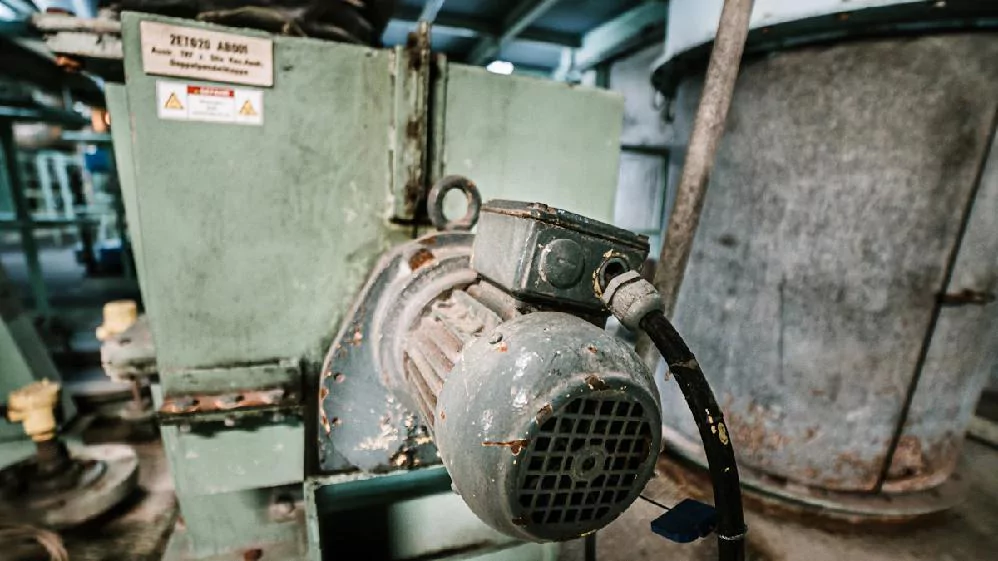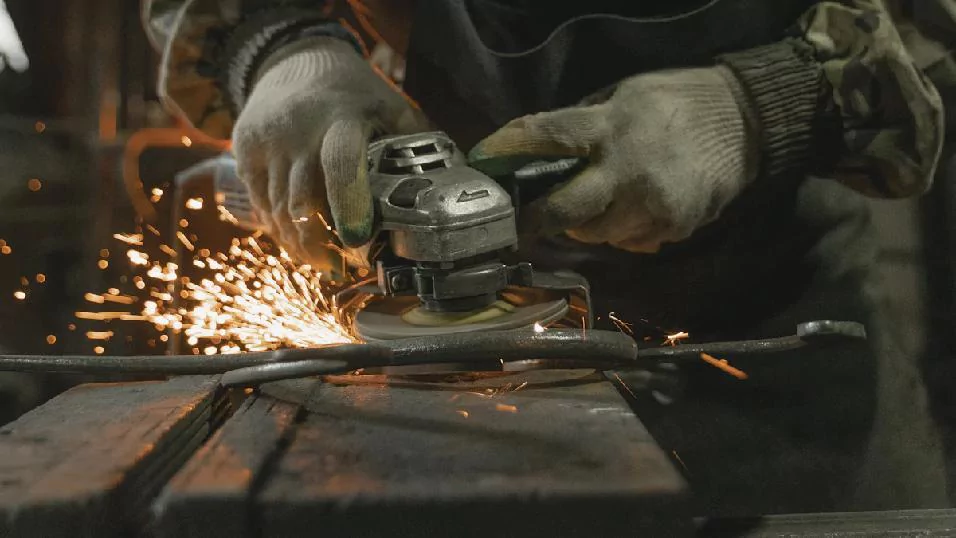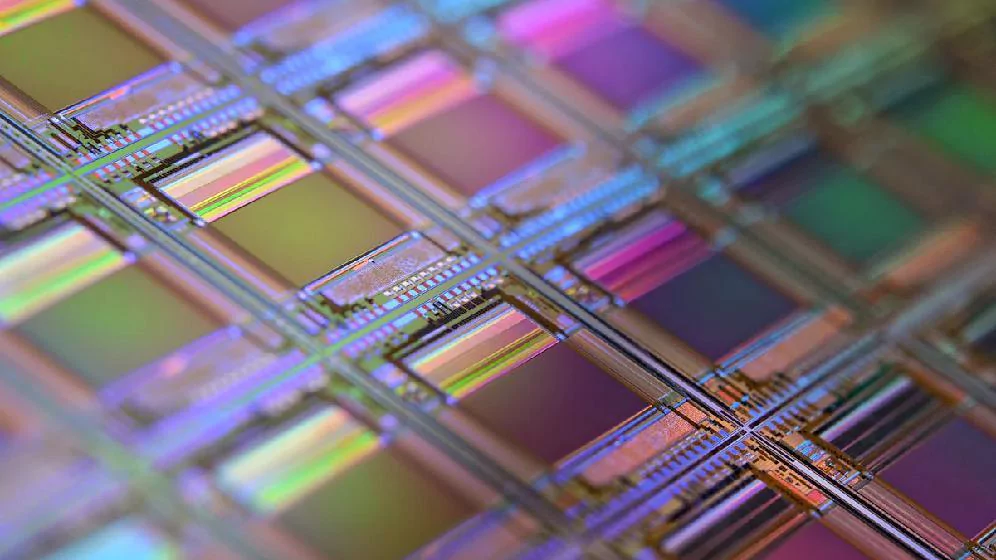
Composition and Material Properties
Silicon Steel Composition
Silicon steel, also known as electrical steel or lamination steel, is a specialized alloy primarily composed of iron with varying silicon content. This composition enhances the material’s magnetic properties, making it indispensable in various applications. While other advanced materials like amorphous metal have emerged, silicon steel remains a reliable choice for many essential devices due to its consistent performance over time.
Silicon Content
The addition of silicon in iron significantly improves the physical properties of electrical steels. With silicon content ranging from 1% to 6.5%, silicon steel exhibits high permeability, low magnetostriction, high electrical resistivity, and reduced hysteresis loss. These characteristics are crucial for supporting the efficient generation, distribution, and consumption of electricity in transformers, motors, and generators.
Magnetic Properties
Cold-rolled silicon steel finds extensive use in high-performance electrical and electronic devices where low core loss and high magnetic permeability are critical factors. Its magnetic conductivity plays a vital role in enhancing the efficiency of power transformers, electric motors, and generators by minimizing energy losses during operation.
Electric Machine Steel Composition
Electric machine steel is another specialized material used in electromagnetic devices for reducing power loss and improving overall efficiency. Unlike silicon steel, electric machine steel incorporates specific alloying elements that enhance its mechanical properties to withstand varying operational conditions effectively.
Alloying Elements
In electric machine steel composition, various alloying elements are added to optimize mechanical strength and durability. These elements contribute to the material’s ability to endure high temperatures and mechanical stress levels encountered in motors, generators, and other electromagnetic devices.
Mechanical Properties
The mechanical properties of electric machine steel play a pivotal role in ensuring the structural integrity of electromagnetic components. With superior mechanical strength and resilience to external forces, this material provides reliability and longevity in demanding industrial applications.
Manufacturing Processes
Production of Silicon Steel
Cold Rolling Process
The production of silicon steel involves a meticulous cold rolling process that plays a crucial role in shaping the material’s final properties. Initially, the raw silicon steel undergoes cold rolling to reduce its thickness and enhance its surface finish. This process is essential for achieving the desired magnetic characteristics and structural integrity required for applications in transformers and motors.
Grain Orientation
Grain orientation is a fundamental aspect of producing high-quality silicon steel coils. Through controlled annealing processes, the grains within the material align in a specific direction, optimizing magnetic properties. This precise alignment enhances the efficiency of transformers by minimizing energy losses during electrical conversion. The grain-oriented structure of silicon steel contributes significantly to its superior performance in electromagnetic devices.
Production of Electric Machine Steel
Hot Rolling Process
In contrast to silicon steel, electric machine steel is manufactured through a distinct hot rolling process that imparts unique mechanical properties to the material. During hot rolling, the steel is heated above its recrystallization temperature and shaped into desired forms through controlled deformation. This method ensures uniformity in grain structure and enhances the material’s strength and durability for demanding industrial applications.
Heat Treatment
Heat treatment is an integral part of refining electric machine steel to achieve optimal performance characteristics. By subjecting the material to specific heating and cooling processes, its microstructure is modified to enhance hardness, toughness, and overall mechanical properties. Heat treatment plays a vital role in improving the material’s resistance to wear and fatigue, ensuring long-term reliability in electromechanical systems.
The manufacturing processes of both silicon steel and electric machine steel are meticulously designed to meet stringent quality standards and performance requirements. From cold rolling for precise thickness control in silicon steel to heat treatment for enhancing mechanical resilience in electric machine steel, each step contributes to the distinctive properties that make these materials indispensable in various industries.
By understanding these intricate manufacturing processes, industry professionals can appreciate the craftsmanship involved in producing silicon steel coils and electric machine components. These specialized techniques ensure that each material meets stringent specifications for efficiency, reliability, and longevity in critical applications across diverse sectors.
Applications
Uses of Silicon Steel
Transformers
- Silicon steel, with its high silicon content, is extensively utilized in the manufacturing of transformers.
- The material’s magnetic properties, including high permeability and low core loss, make it an ideal choice for transformer cores.
- By efficiently converting electrical energy from one circuit to another, silicon steel contributes to the seamless operation of power distribution systems.
Motors
- In the realm of motors, silicon steel plays a crucial role in enhancing performance and efficiency.
- The material’s magnetic conductivity and low hysteresis loss enable motors to operate with minimal energy wastage.
- Whether in industrial machinery or consumer appliances, silicon steel-coiled motors provide reliable power generation for various applications.
Uses of Electric Machine Steel
Generators
- Electric machine steel finds significant application in generator manufacturing due to its exceptional mechanical properties.
- The material’s alloying elements enhance its durability and resistance to mechanical stress during power generation.
- By incorporating electric machine steel components, generators can deliver consistent power output across diverse operational conditions.
Electromagnetic Devices
- Various electromagnetic devices benefit from the unique properties of electric machine steel for improved functionality.
- From small relays to complex solenoids and actuators, electric machine steel ensures precise control and reliability in electromagnetic systems.
- The use of this specialized material guarantees optimal performance and longevity in critical electromechanical applications.
Performance Characteristics
Magnetic Conductivity
Silicon Steel Coil Efficiency
When comparing silicon steel to electric machine steel, one can observe the superior magnetic permeability and lower core loss exhibited by silicon steel coils. These distinctive properties make silicon steel coils an ideal choice for high-performance applications in power transformers, electric motors, and generators. The efficiency of silicon steel coils lies in their ability to maintain consistent magnetic conductivity, ensuring optimal performance in various electrical devices.
Loss Reduction
In the realm of electrical materials, minimizing energy losses is a critical factor for enhancing overall efficiency. Silicon steel, with its unique composition and magnetic properties, excels in reducing hysteresis loss and core loss. By leveraging the benefits of low core loss, silicon steel coils contribute significantly to improving energy efficiency in transformers and motors. This reduction in losses not only enhances operational effectiveness but also leads to cost savings for industries relying on efficient power distribution systems.
Mechanical Strength
Durability
One key aspect that sets electric machine steel apart from silicon steel is its exceptional mechanical strength and durability. While silicon steel offers cost-effective solutions with a reliable track record, electric machine steel surpasses it in terms of robustness and resilience. Electric machine steel undergoes additional thermomechanical processes to overcome brittleness and limited ductility, ensuring long-term durability under varying operational conditions.
Load Bearing
The load-bearing capacity of materials used in electromagnetic devices is crucial for maintaining structural integrity and operational efficiency. Electric machine steel’s superior load-bearing capabilities make it a preferred choice for components subjected to mechanical stress during operation. By withstanding high temperatures and mechanical forces, electric machine steel ensures the reliable performance of generators, motors, and other electromechanical systems across diverse industrial settings.
By understanding the distinct performance characteristics of silicon steel coils and electric machine steel components, industry professionals can make informed decisions regarding material selection for specific applications. While silicon steel coils excel in magnetic conductivity and loss reduction, electric machine steel stands out for its mechanical strength and load-bearing capacity. Each material brings unique advantages to the table, catering to different requirements within the realm of electromagnetic devices.
Market Trends and Supply
Demand for Silicon Steel
The global market trends for silicon steel underscore its pivotal role in the electrical industry, driven by the increasing demand for high-performance materials. With silicon content ranging from 1% to 6.5%, silicon steel offers unparalleled magnetic properties essential for transformers, motors, and generators. The surge in renewable energy projects worldwide has further boosted the demand for silicon steel, emphasizing its significance in sustainable power generation.
Supply chain challenges pose a notable concern for silicon steel manufacturers, as ensuring a consistent flow of raw materials and maintaining production efficiency are critical factors. The intricate manufacturing processes involved in creating high-quality silicon steel coils require meticulous attention to detail and adherence to strict quality standards. Addressing supply chain disruptions is imperative to meet the escalating demands of the electrical equipment market.
Qingdao Sunrise New Materials Co., Ltd., commonly referred to as Sunrise New Materials, is a globally recognized supplier specializing in steel and non-ferrous metal raw materials. The company is committed to delivering reliable and satisfactory customized supply solutions for a wide array of steel and metal products to users around the world. As a comprehensive one-stop supplier, Sunrise New Materials has earned the trust of tens of thousands of customers, becoming the preferred provider of steel and fiberglass products in over 100 countries and regions, including Europe, the Middle East, South America, and Africa.
Sunrise New Materials is headquartered in Qingdao, China, where it has made significant investments in production lines for various products. These include galvanized color coating, seamless steel pipes, cold-rolled plates, fiberglass, and stainless steel. The company has also cultivated long-term and positive cooperative relationships with large domestic and international steel mills, such as Baosteel, Taiyuan Iron and Steel, and POSCO. This network enables Sunrise New Materials to offer high-quality products and services to its customers efficiently.
Demand for Electric Machine Steel
Regional market insights reveal a growing demand for electric machine steel across various industrial sectors, highlighting its versatility and reliability in electromechanical applications. The alloying elements integrated into electric machine steel enhance its mechanical strength and durability, making it an indispensable material for generators, motors, and electromagnetic devices. As industries continue to prioritize energy efficiency and operational performance, the demand for electric machine steel is expected to rise steadily.








